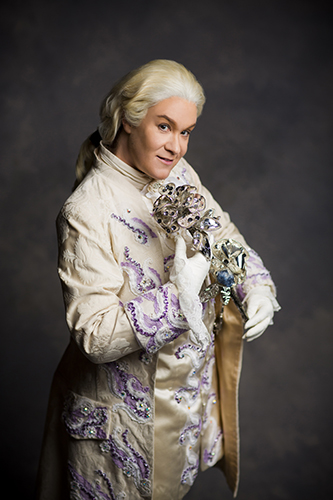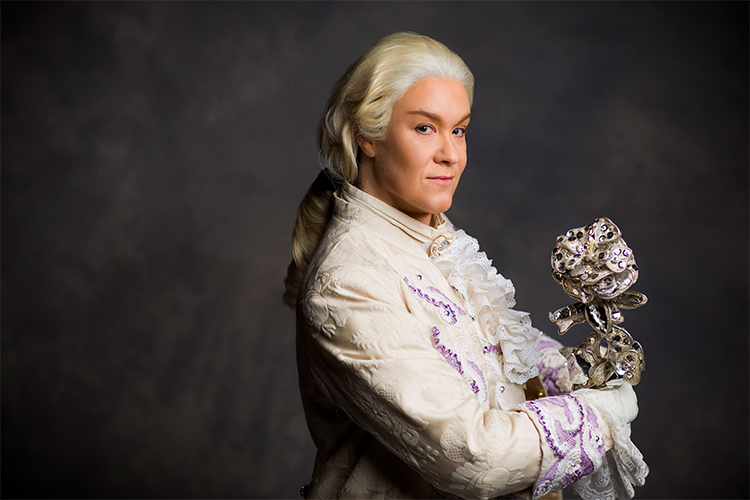March 06, 2019
A New Octavian at Lyric
Ladies and Gentlemen! There’s a new Count Octavian between the sheets this month in Lyric’s ebullient production of Der Rosenkavalier. English mezzo-soprano Alice Coote returns to Lyric for the final performances as the teenaged “Cavalier of the Silver Rose,” whose affections are torn between his married lover the Marschallin and the lovely young Sophie. When Octavian serves as betrothal messenger for Baron Ochs, he falls head over heels himself.

It’s Alice’s fifth role at Lyric and her fourth in pants. (Previously here she’s played the scruffy juvenile Hansel, an elegantly bored Count Orlofsky, and an idealistic Composer, plus Hercules’s agonized wife Dejanira.) As Alice wrote in The Guardian* last year, “I get paid to flatten my breasts, dress up as a man, make love to other women, all the while singing athletically elaborate music without a microphone.” Some of the roles she sings may originally have been written for castrato or countertenor; others, like Strauss’s Octavian and his inspiration, Mozart’s Cherubino, were meant to be sung by mezzo-soprano women dressed as lusty young men —and at least part of the time double cross-dressed as comely maids.
“This is a normal part of the job,” Alice continues in her essay. “Some of the most iconic roles I am lucky to…perform are so-called ‘trouser’ or ‘breeches’ roles. There are at least 70 of them in the repertory….Composers from Handel to Humperdinck found in the female voice a quality that illuminated their male characters, while the thrill of the sexual ambiguity and also the beauty of the sound appeal[s] to audiences.”
It’s a formidable challenge for operatic artists, and a miraculous transformation that goes well beyond dressing as the opposite sex. As Alice notes, “To sing with a female voice and act with a male persona requires decades of dedication and love for the craft and creative process. I have to separate my mind from my body and imagine myself in one with a different gender, structure, sensations, qualities, and desires. I have to change my balance and physical movements from the minute to the large. I have to edit my very approach to the world…and make my interactions and responses male.” Which means she’s so in character that she sometimes heads to the men’s room on rehearsal break – though she usually catches herself in time.
And then there’s the singing, which Alice tries to filter “through the mindset of the male character I am playing….I may choose a sound color that is drier or more taut or less emotional…if the character seems to require it. But I often decide that the vulnerability of the character (male or female) means I need to show the emotion in my voice in exactly the same way, and yet when I am playing a man it still seems to come out of me in a different quality of tone and phrasing from when I am playing my own sex.”

Alice has been refining her transformative process for two decades, 70 percent of her working life. She’s triumphed as Octavian in New York, Vienna, Munich, Los Angeles, and, Geneva, and in a wide range of other roles from Baroque to contemporary in top opera houses all over the world. Her vibrant, heartfelt performances consistently earn rave reviews, The Times praising her “gleaming mezzo,” The Telegraph calling out her “incandescent voice, passionately engaged…making every bar…dramatically alive and meaningful, ” the Chicago Tribune calling her “impetuous yet vulnerable.”
How exciting to welcome Alice back to Lyric in one of her signature roles! Don’t miss your chance to see and hear this magnificent mezzo light up the stage with her equally marvelous costars.
*to read the entire essay, go here
Watch Mezzo-soprano, Alice Coote, as she transforms into Octavian for Lyric's DER ROSENKVALIER
